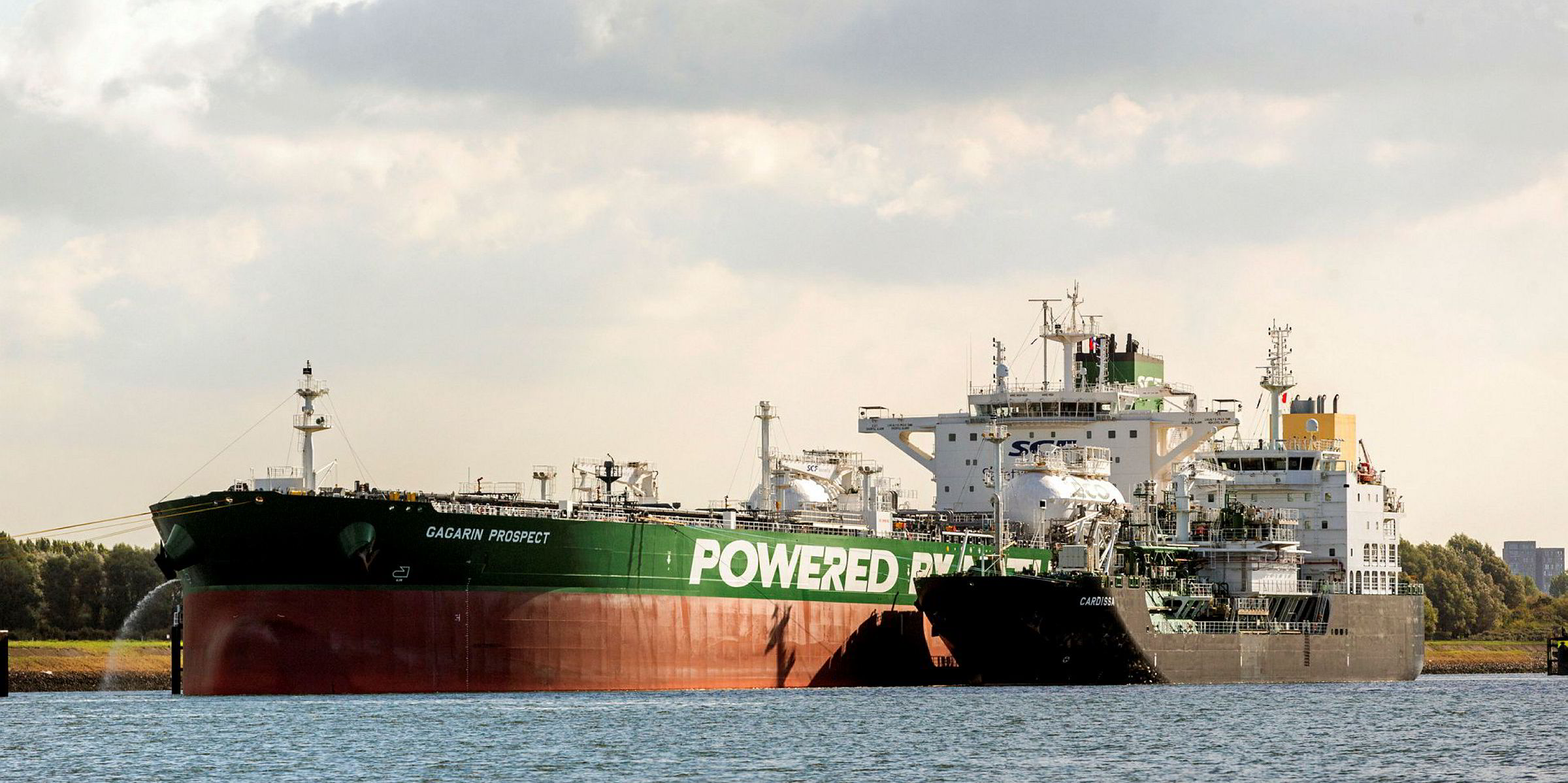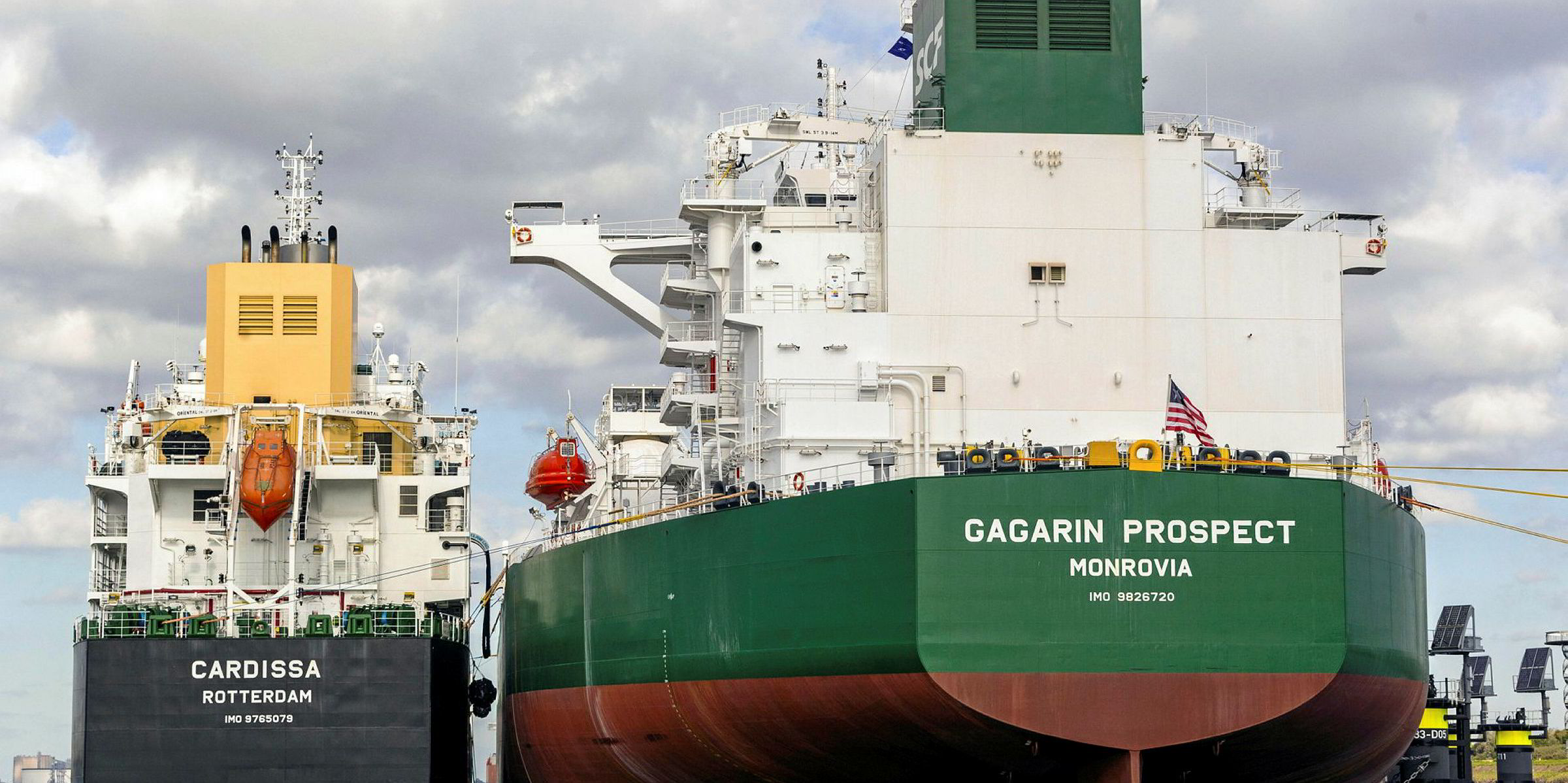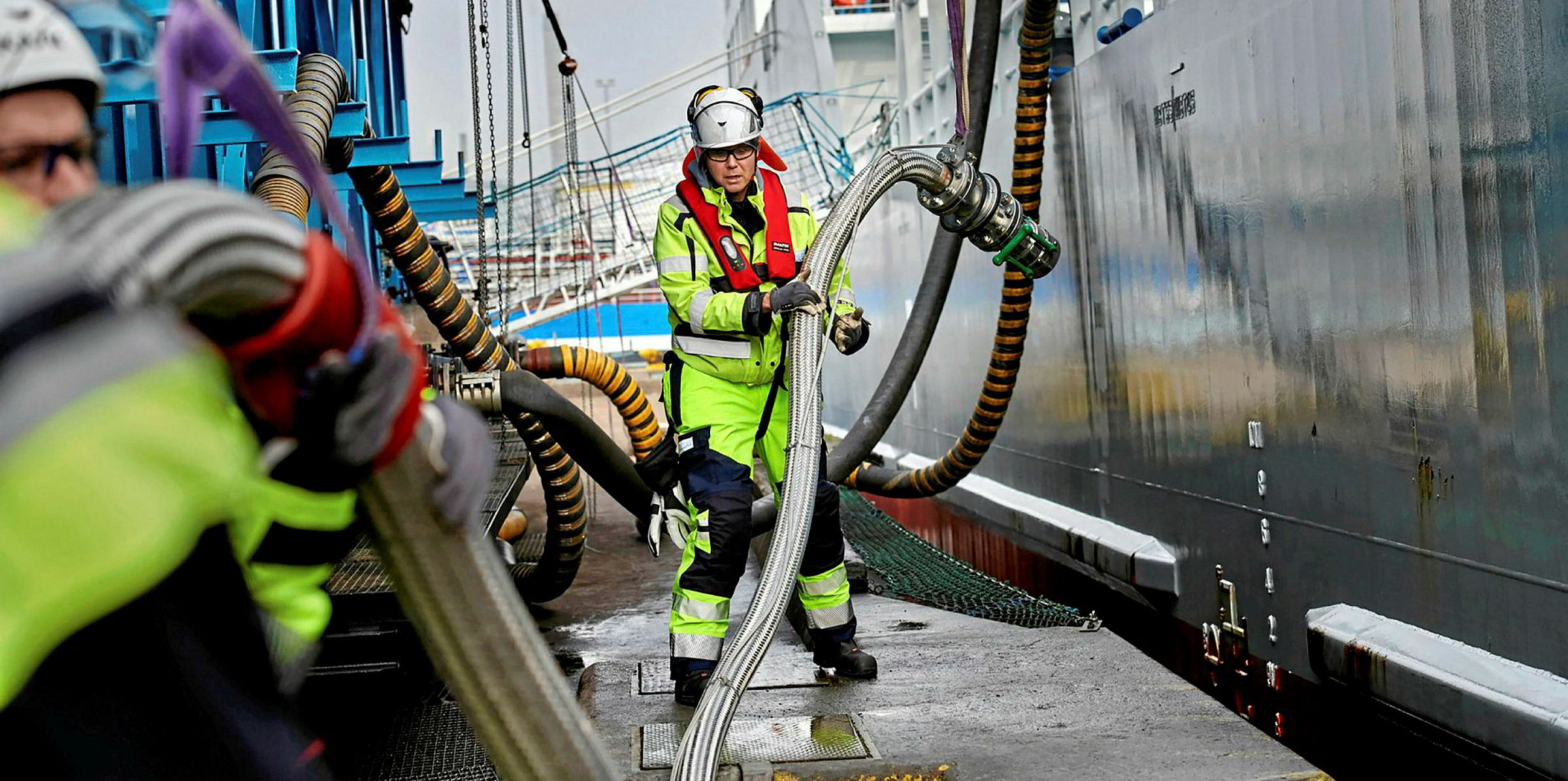Greater transparency in LNG bunker pricing is needed to encourage shipowners to make the switch to LNG as a fuel, according to Affinity (Shipping) managing partner Richard Fulford-Smith.
The shipbroking head, who is working on an LNG-fuelling project with several large liner companies, believes LNG should offer a pathway to decarbonisation for all large deepsea vessels.
But he is concerned about what he sees as “manipulation” of LNG fuelling pricing, in what is still a relatively illiquid market.
Fulford-Smith said this is stifling growth and fleet replacement, particularly in the liner trades where big names such as Mediterranean Shipping Co and AP Moller-Maersk have been been ranked eighth and 11th, respectively, alongside coal utilities in a European Union list of top CO2 emitters.
He quoted Affinity’s assessment that takes the European gas price Title Transfer Facility (TTF) benchmark, less regasification costs that are seen as sunk costs, plus a bunkering logistics cost.
In contrast, Affinity said existing large suppliers are using a different pricing model that is inflating LNG bunker costs.
Fulford-Smith said Affinity will start publishing a dollar per tonne price for less-heavily traded LNG based on an assumption of what the true costs of gas will be in the market.
Referencing the three main gas price benchmarks used in LNG he said: “We trade the price of TTF, Henry Hub and JKM [Japan Korean Marker].
“It is not a secret. What people are trying to do is extract ginormous margins out of this by not being transparent. I’m saying be transparent. We’ve got a daily marker. Why not use it?”
Not everyone agrees.
Pricing delta
Michael Schaap, commercial director at bunker supplier Titan LNG, said it is not possible to give a single price benchmark as there are a wide variety of LNG bunkering operations taking place, some of which entail more work than others.
“The price delta is pretty big,” Schapp said, adding that, as such, taking a mean could confuse potential customers who are trying to make investment decisions.
Xavier Pfeuty, LNG bunkering general manager for Total Marine Fuels Global Solutions, said the LNG molecule price is transparent in Europe as TTF is a good marker.
But, he added, the logistics costs of the LNG bunker vessel can vary depending on the user and their ability to schedule the supply they need.
Shipowner Lars Hoglund, who is managing director of Furetank, is happy buying his LNG bunkers on a spot basis in northern Europe.
“We have a conversion sheet where we put in the TTF [price] and the logistics costs and then it comes in compared to oil and this is what we follow all the time,” he said. “It is not a problem for owners.”
Hoglund and some others did have one gripe though.
“The problem is that when you start to talk to bunker suppliers, then you have to sign confidentiality agreements,” he said. “But that will change as the industry grows and becomes more liquid.”







